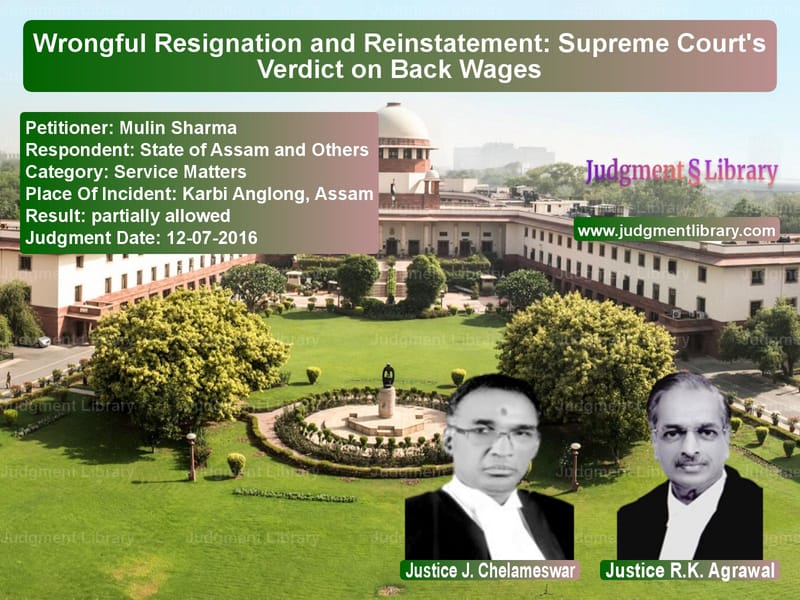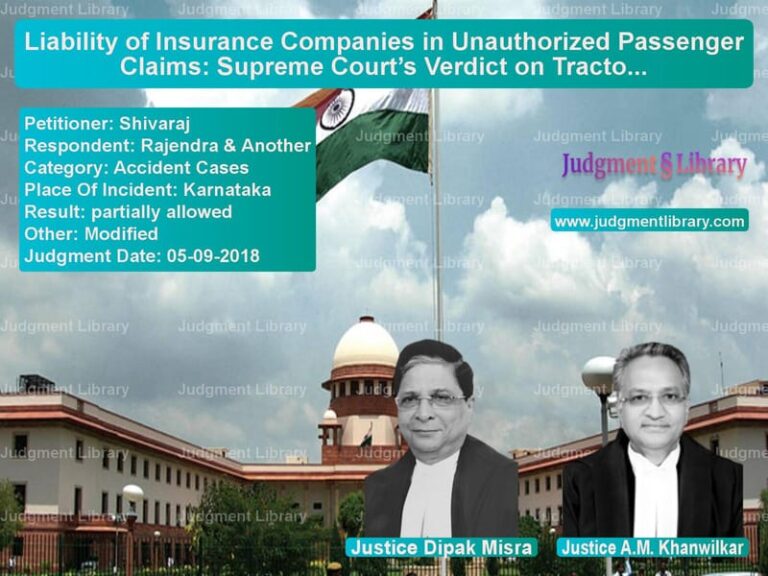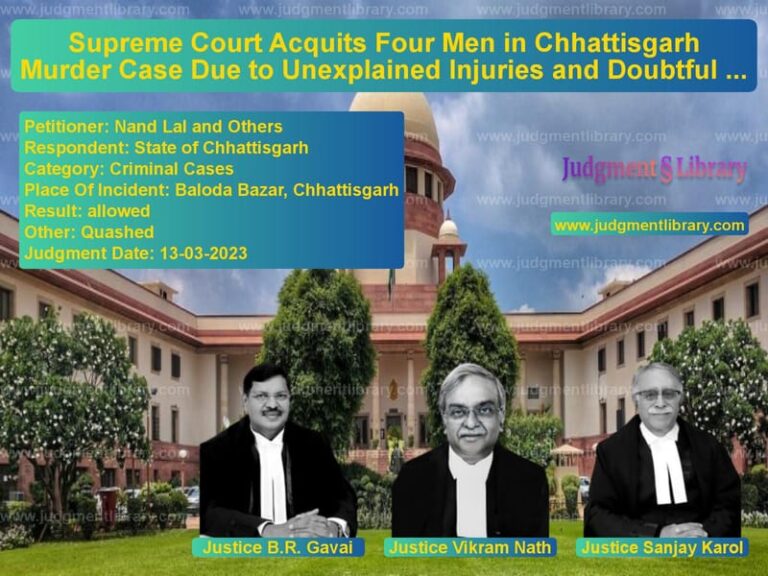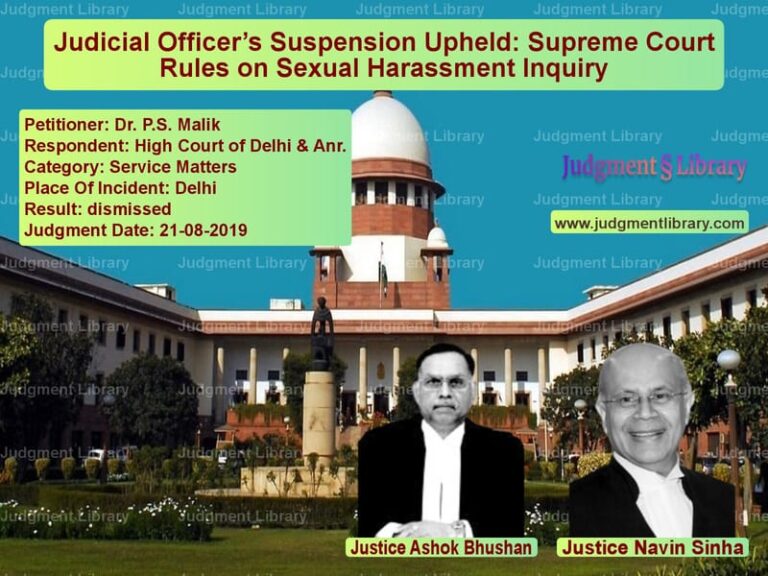Wrongful Resignation and Reinstatement: Supreme Court’s Verdict on Back Wages
The case of Mulin Sharma vs. State of Assam addresses a crucial employment dispute involving wrongful resignation and the legal question of back wages. The Supreme Court had to determine whether the appellant, who was forced to resign, was entitled to compensation for the period he was unemployed.
Mulin Sharma, a Sanskrit teacher, was allegedly forced to resign under coercion. After a prolonged legal battle, the Supreme Court ruled in his favor regarding reinstatement but denied back wages, awarding him a compensatory sum instead.
Background of the Case
Mulin Sharma, employed as an Assistant Teacher in Assam, claimed that he was coerced into resigning due to pressure from school authorities. He approached various authorities but received no relief, ultimately filing a writ petition in the Gauhati High Court.
While the High Court ruled that his resignation was not voluntary, it denied him back wages. Dissatisfied, Sharma appealed to the Supreme Court.
Key Legal Issues
- Was Mulin Sharma’s resignation voluntary?
- Should he be granted back wages for the period he was unemployed?
- What compensation, if any, should he receive?
Arguments from Both Sides
Appellant’s Arguments
Mulin Sharma argued that he was compelled to resign through criminal intimidation. His plea included:
- The resignation was extracted under duress and was not voluntary.
- He was wrongfully deprived of his salary and employment.
- Since the High Court held that the resignation was invalid, he should receive back wages.
Respondents’ Arguments
The State of Assam countered by stating that:
- The appellant did not work during the disputed period.
- There was no concrete proof that he was unemployed throughout that time.
- Back wages are not an automatic right upon reinstatement.
Supreme Court’s Judgment
The Supreme Court examined the evidence and held:
- “It is undisputed that the resignation tendered by the appellant was not voluntary.”
- “Payment of back wages is a discretionary power and must be decided based on the facts of the case.”
- “The appellant has not produced any material on record to prove that he was unemployed during that period.”
Consequently, the Court upheld the reinstatement order but denied back wages, awarding Sharma a sum of Rs. 25,000 for wrongful denial of employment.
Conclusion
This case highlights the legal principles governing wrongful resignation and back wages. While reinstatement is a rightful remedy, the burden of proof lies on the employee to demonstrate financial hardship during the unemployment period. The judgment reinforces the view that courts exercise discretion in granting back wages rather than assuming an automatic entitlement.
Don’t miss out on the full details! Download the complete judgment in PDF format below and gain valuable insights instantly!
Download Judgment: Mulin Sharma vs State of Assam and O Supreme Court of India Judgment Dated 12-07-2016-1741873172833.pdf
Direct Downlaod Judgment: Direct downlaod this Judgment
See all petitions in Employment Disputes
See all petitions in Termination Cases
See all petitions in Judgment by J. Chelameswar
See all petitions in Judgment by R K Agrawal
See all petitions in partially allowed
See all petitions in supreme court of India judgments July 2016
See all petitions in 2016 judgments
See all posts in Service Matters Category
See all allowed petitions in Service Matters Category
See all Dismissed petitions in Service Matters Category
See all partially allowed petitions in Service Matters Category







